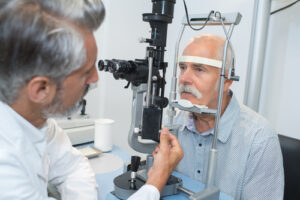Have you or a loved one recently been diagnosed with glaucoma? Around the world, eighty million people are living with glaucoma.
It’s a very common eye condition and is the second leading cause of blindness. Glaucoma is a slow-progressing eye condition.
While it can progress to causing severe damage to your vision, early detection, and treatment can help preserve your vision. By taking some simple actions and avoiding others, you can help prevent the condition from progressing.
Keep reading to find out what the do’s and don’ts are if you have glaucoma!
What Is Glaucoma?
Glaucoma causes damage to your optic nerve. Located at the back of your eye, your optic nerve transports information to your brain.

Your brain uses this information in order to create images. Glaucoma is typically caused by a build-up of fluid.
There are several types of glaucoma. The two most common are called open-angle glaucoma and closed-angle glaucoma.
Open-angle glaucoma affects your vision gradually, often causing no noticeable symptoms at first. Eventually, it will begin to damage your peripheral vision and, if left untreated, will affect your central vision.
On the other hand, in another type of glaucoma, angle-closure glaucoma, the build-up of fluid is sudden and painful, often causing many symptoms and rapid vision loss.
Do: Visit Your Eye Doctor
When you are diagnosed with glaucoma, your eye doctor will tell you how often they would like to see you back. Make sure you schedule follow-up appointments as they recommend.

Usually, they will want to see you at least a couple of times a year.
Regular appointments are vital to monitor the progression of this disease.
During them, your eye doctor will check your eye pressure. If your glaucoma is worsening, additional treatment may be needed.
Appointments also offer an opportunity for you to bring up any questions and concerns you may have, whether about a medication, symptoms, or anything else.
Do: Take Your Medication As Prescribed
There are a range of glaucoma treatments available. Most patients are prescribed eye drops.
These work by lowering eye pressure, either by decreasing the amount of fluid in the eye or by helping it to drain. This aims to prevent further damage to the optic nerve.
Your eye doctor may prescribe one kind of eye drop or multiple. Some are meant to be taken once per day, while others are intended for multiple daily uses.
Always take your medication as advised. If you have any questions, ask your eye doctor.
Do: Live Healthily and Take Care of Your Eyes
When you live healthily, it bolsters your well-being in all sorts of ways, including your eyes. It’s always a good idea to maintain a well-balanced diet with plenty of fruits and leafy vegetables.
Foods containing vitamin A, vitamin C, and omega fatty acids support your eye health. Exercise is also encouraged for glaucoma patients.
Don’t: Ignore Symptoms or Delay Treatment
Glaucoma does not get better on its own, and the damage it causes is irreversible. By ignoring symptoms or delaying treatment, you are putting your vision at risk.
Once you and your eye doctor decide on the best course of treatment for you, don’t delay. The earlier treatment begins, the better the outcome.
If you notice any new or worsening symptoms, be sure to report them to your doctor as soon as possible.
Don’t: Smoke or Consume Excessive Alcohol
Smokers have an increased risk of developing glaucoma. If you already have glaucoma, it’s recommended that you quit smoking.
As with many other parts of your body, cigarettes can damage your eyes. Excessive drinking can damage your optic nerve as well.
A glass or two of wine is okay, but a moderate or high intake of alcohol should be avoided.

Don’t: Skip or Alter Medication Dosages
It can be easy to forget to take medication, especially when it’s new, but it’s essential that glaucoma patients keep up with their medication. It can be helpful to set a daily reminder in the form of an alarm or a note on your bathroom mirror.
Never alter medication dosages. If you forget to take your eye drops one day, don’t try to make up for it by taking a double dose the next. Always take the proper dosage as advised by your doctor.
Tips for Living with Glaucoma
Any time you are diagnosed with a condition, it’s important that you understand it. Your eye doctor will talk to you in depth about glaucoma.

Take time to carefully process all this information and ask any questions you may have. There are many resources available to further your understanding of glaucoma.
You might consider borrowing a book from the library, or watching informative videos online. You also may want to consider investing in visual aids if you or a loved one has experienced vision loss from glaucoma.
There are many different kinds of visual aids that can help patients who are experiencing changes to their vision due to glaucoma. Both high-tech and low-tech options are available.
Magnifiers, microscope glasses, and devices that facilitate side vision may be helpful. Some patients utilize programs that convert text to speech, or that allow them to enlarge text and contrast on a screen.
Something as simple as a large-print calendar may make a great deal of difference. Your doctor can review these options with you. When you are diagnosed with a health condition, it can feel isolating.
Lean on your network of family and friends for emotional support. You can also connect with other glaucoma patients through online or local groups.
Are you worried you might have glaucoma? Schedule an appointment at Cheema MD Eye Care in Kingston, NY, today!



